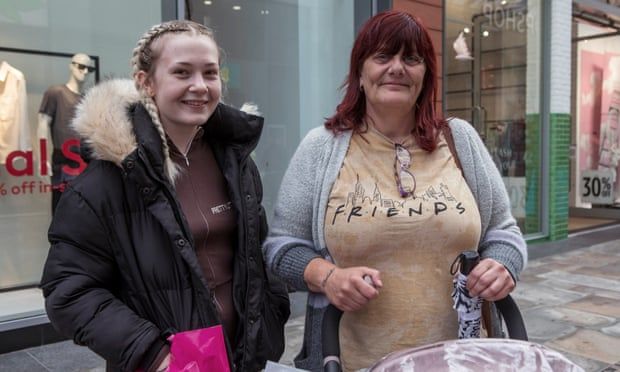
‘It’s offensive’: Wakefield residents on PM’s pit closures joke
In a neatly decorated terraced house in the old mining village of Stanley on the outskirts of Wakefield, 64-year-old ex-miner Ian Hoggan pulled out a banner showing a miner crucified on a colliery wheel, with the words “Save our pensions.”
Hoggan, who worked down a pit here in Wakefield and one at Selby, now devotes a large portion of his time to fight for millions of pounds of pensions savings to be returned to miners and their families, many of whom are struggling financially.
Last month former mineworkers were left “sickened and disgusted” after the prime minister broke his promise to end an arrangement set up in 1994 that has seen the government take 50% of the Mineworkers’ Pension Scheme funds in exchange for a commitment that the pot’s value would not drop.
“They’ve never paid a penny in and yet they’ve completely raided it,” Hoggan said of the government. “Local shops and pubs are shutting round here, and that is happening because loads of miners can’t afford to bloody go in the pubs now, when they used to go in them every week. I can’t get my head around why they want to punish us to the grave,” he said.
It is a heated row, made worse this week by Boris Johnson’s joke that Margaret Thatcher had given the UK an “early start” on tackling fossil fuels by closing the pits.
While for some, the prime minister’s comment was about a moment in history that has long passed, for Hoggan, and many people who live in former mining communities that still have not recovered from the abject destitution of the miners’ strikes and the pit closures Thatcher brought on in the 1970s and 80s, the pain is still acute.
“I don’t think he gives a damn about anybody, or the climate, or the state of children’s health, poverty, homeless people, the state of rented housing,” said Hoggan who cycles instead of drives, to help tackle climate change.
Chris Kitchen, the general secretary of the National Union of Mineworkers, said Johnson’s comment “just shows how devoid he is of compassion and how far he is from the real world”.
He added: “To make light of the devastation of the industry that threw mineworkers on the scrapheap, I’m just lost for words for how this country has gone downhill if this is the best we’ve got to represent us as a prime minister.
“There are still families that were torn apart due to the dispute that still don’t speak to each other, former mineworkers that are still living with poor health with very little assistance whatsoever … and you’ve got communities now that still haven’t recovered from the mines shutting. For him to make light of that, it’s beyond a joke.”
These words were echoed on the street in Wakefield, where people feel hurt, being surrounded by former mining towns and villages.
Donna Adams, a headteacher, said the prime minister should choose his words more carefully.
“People can be sensitive to blase comments because words have a deep-rooted impact on everyday working-class people.
 Headteacher Donna Adams said Boris Johnson ‘doesn’t always understand working-class people’ .
Headteacher Donna Adams said Boris Johnson ‘doesn’t always understand working-class people’ .
“[Johnson] doesn’t always understand working-class people – more educated people sometimes think it doesn’t matter. He hasn’t lived the life of working-class people, where money’s scarce, and I don’t always think there’s much understanding at that top level.”
In 2019, like many Labour heartlands, Wakefield gained its first Tory MP in living memory, Imran Ahmad Khan, currently an independent, having had the whip withdrawn in June when he was charged in connection with a historic sexual offence. In a statement posted on Twitter, Khan said he denied the accusation “in the strongest terms”.
Adams warned that Johnson was in danger of losing any support gained in previously Labour areas. “People round here are not happy with Keir Starmer. [Johnson] could make a big impact if he was more careful,” she said.
 Michelle Preston (right) and Verity Wollerton in Wakefield.
Michelle Preston (right) and Verity Wollerton in Wakefield.
Michelle Preston, out shopping with her daughter-in-law, Verity Wollerton, said her opinion of the prime minister had plummeted.
“It’s changed my opinion on him. My dad was a miner and he would be really upset by that. It’s really offensive. Boris was born with a silver spoon in his mouth – we haven’t all had a life like that.”











